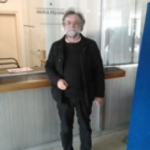by Tihomir Žiljak
How can we describe the informal network Danube Networkers ,DANET and its follower the International Association Danube Networkers for Europe? In both cases this has been a group of people sharing values and being committed to European cooperation, social inclusion, intergenerational dialogue and learning in later life. The Danube region as a junction between Eastern and Western Europe is the area in which this network most frequently carries out its activities. This group is not just a bondage of the core network members from the Danube region since DANET has been building bridges extending also to other countries and other regions, maintaining the network of the participating organisations in both formal and informal way.
The formal side of the Danube networkers is the Association DANET. Danube networkers for Europe with its president, vice president, treasurer, general secretary, the board etc. But there are also many activities in which periodically are included individual experts, organisations from other European countries, NGOs and educational institutions. We meet and collaborate in conferences, seminars, projects and programmes. We have already written on the DANET web site about all those activities and what has been happening in the network Danube networkers, and the International Association Danube networkers for Europe over the past 10 years.
So, what can we say about this network and this organisation? they remind us of bumblebees that seem to defy the laws of aerodynamics, yet they fly. There are problems with money, there are problems with premises and the provision of the professional support. Sometimes members are tired of having too many tasks to carry on in their own organizations. But despite all the hardships the DANET organisation still flies. Carmen, the main engine of the organization has ambitious aspirations which we gladly share and upgrade if necessary, but she expects our constant help and commitment. She always pushes us further. Over the last ten years also the political environment has changed in the Danube region, but in spite of the new circumstances we are as always open to cooperation. We are still committed to European ideas. It is not just about being committed as responsible members, it has become a kind of glue, a matter of friendship. And this type of bondage is amazingly strong and resistant. That is why I think such type of civil organisations survive. They say that it is relatively easy to establish a network or a non- governmental organisation, but it is not easy to maintain them. Founded during the Danube Festival in Ulm in 2008 the informal educational network Danube Networkers DANET has been there for eleven years now and a more structured international Association Danube Networkers for Europe was founded in 2014 in Ulm as well, so it has been there for five years already. Despite social, political and organisational obstacles we have been flying and will continue to do so. (Source: Tihomir Žiljak, Open University Zagreb)

